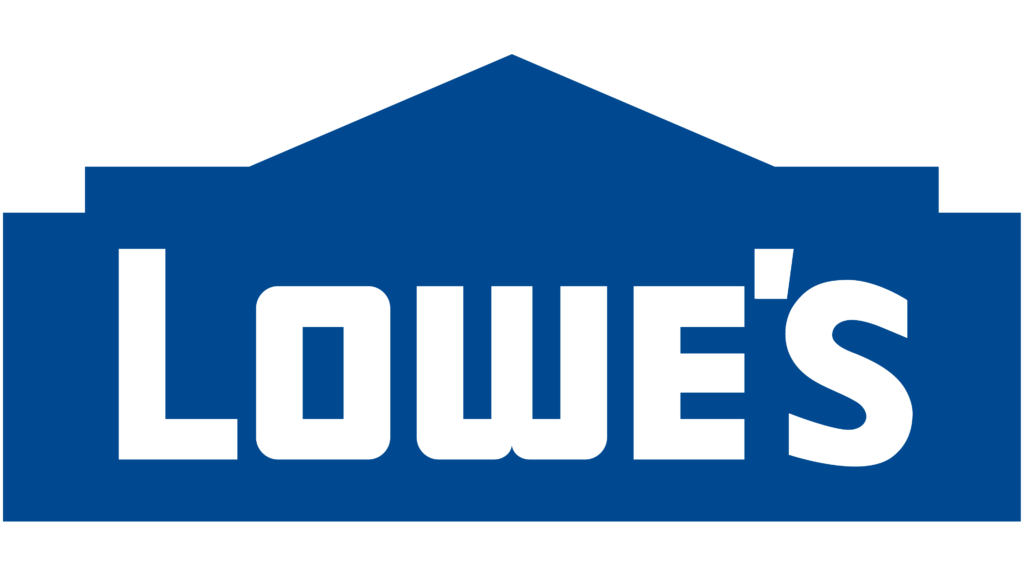What is the Lowe’s Net 30 Account?
A Lowe’s Net 30 Account is a business credit account designed to help companies purchase products and services from Lowe’s with the flexibility of a 30-day payment term. The Lowe’s Commercial Account offers net 60 terms for repayment. This account provides businesses with a convenient way to manage expenses while simultaneously building their credit profile.
The Lowe’s Commercial Account provides additional discounts on in-store and online purchases. In addition, members receive a 5% discount on each eligible purchase at Lowe’s. It’s essential to consider the cost implications of using the Lowe’s Net 30 Account, as payment terms can affect your overall expenses. It may result in additional fees if payments are delayed.
The Lowe’s net 30 account, or Lowe’s Commercial Account, reports to Experian Business and Dun & Bradstreet. This makes it a valuable tool for improving your business credit score. This account is invaluable for businesses that need to acquire materials regularly, such as construction firms or contractors, and want to establish trade lines to strengthen their creditworthiness over time.
Net 30 Accounts & Business Credit
Net 30 accounts, like the Lowe’s Commercial Account, are essential for businesses looking to establish or improve their credit. These accounts allow businesses to purchase items on credit, with payment due within 30 days. This structure provides operational flexibility while enabling businesses to demonstrate their ability to manage credit responsibly.
Obtaining traditional lines of credit or business loans can be challenging for younger or smaller businesses. Vendor credit accounts, such as Net 30 accounts, offer a more accessible alternative. Timely payments on these accounts are reported to two business credit bureaus, helping businesses build their credit profiles and improve their chances of qualifying for other financing options in the future.
How does a Lowe’s Commercial Account work?
A Lowe’s Commercial Account operates as a vendor credit line, offering businesses a revolving credit account specifically for Lowe’s purchases. Approved applicants can use the account to buy eligible products and services, with the flexibility to pay off the balance within 60 days without incurring finance charges. Unlike some business credit cards or accounts that require minimum monthly payments, the Lowe’s Commercial Account requires the full balance to be paid within the 60-day term. Payments beyond the 60-day term may result in late fees and interest charges, so adhering to the due dates is essential. You won’t receive an early pay discount for paying off a net 60 account early with Lowe’s.
Businesses build a positive payment history by using the account responsibly. Lowe’s reports this history to Experian Business and Dun & Bradstreet. This reporting helps improve credit scores and establish a solid foundation for future borrowing opportunities.
Managing Your Account
Effective management of a Lowe’s Commercial Account is critical for reaping its benefits. Businesses must ensure timely payments are made to avoid finance charges and late fees. Monitoring payment history and credit limits is also important, as it allows businesses to track their credit usage and identify opportunities to request higher limits over time.
Regularly updating business information, such as the address and contact details, ensures seamless communication with Lowe’s. Additionally, taking advantage of discounts and promotions available to account holders can help businesses save money while maintaining their cash flow.
Lowe’s also provides support and resources to help businesses manage their accounts effectively.
Building Business Credit
Using a Lowe’s Net 30 Account to build business credit involves several key practices. First, consistent on-time payments are crucial for improving your business credit score. Timely payments demonstrate financial responsibility and strengthen your credit profile with both Experian Business and Dun & Bradstreet.
Second, it’s essential to monitor your credit reports from these bureaus regularly. This allows you to track your progress and identify and remove any discrepancies that may impact your credit score. A business’s prior experience with credit accounts can also influence how quickly it builds a strong credit profile. Additionally, businesses can diversify their credit profile by considering other credit options, such as business credit cards or accounts with different vendors like Office Depot.
Managing Finances with Billing Cycles
Effectively managing your finances with billing cycles is key to maintaining healthy business credit and cash flow. The Lowe’s Commercial Account offers extended net 60 payment terms, giving businesses more time to pay for goods and services. This flexibility can be a significant advantage, especially for businesses that need to manage multiple purchases or large orders.
To take full advantage of these terms, businesses should regularly review their invoices and payment schedules, ensuring that all payments are made on time. By aligning your payment strategy with your billing cycles, you can avoid late fees, reduce costs, and keep your account in good standing. This not only helps improve your business credit profile but also supports overall financial stability. Staying organized with your billing cycles and payment management allows your business to make the most of the services and credit offers available through your Lowe’s Commercial Account.
How do I qualify for a Lowe’s Net 30 Account?
To qualify for a Lowe’s Net 30 Account, businesses must meet certain requirements:
- Provide legal business information, including the company’s name, tax classification, and address.
- Complete a credit application, which typically includes providing details about your business’s financial history.
- Meet the minimum credit score requirement, which is generally around 620.
The approval process evaluates the business’s creditworthiness, so ensuring that all required information is accurate and complete is essential for a successful application. Approval is subject to Lowe’s credit review and is not guaranteed. You can still apply for a Lowe’s net 30 account without a stellar credit check. You should consider your annual revenue when requesting a credit line for a Lowe’s account.
How do I apply for a Lowe’s Net 30 Account?
Before starting your application, businesses can check if they pre-qualify for the Lowe’s Net 30 Account, which helps ensure eligibility and streamlines the process.
Applying for a Lowe’s commercial account is straightforward. Follow these steps to apply.
Step 1: Apply Online or In-Person
You can start by applying online through Lowe’s business credit card center or by visiting a Lowe’s store. The application form requires basic business details.
Step 2: Provide Required Business Information
Applicants must enter accurate business information, such as the legal name, tax ID, and address, into the application form. This helps expedite the approval process.
Step 3: Submit the Credit Application
Complete the credit application and submit it for review. Include any necessary documentation, such as proof of business registration.
Step 4: Wait for Approval
The approval process typically takes a few business days. During this time, Lowe’s evaluates the application and determines creditworthiness.
Step 5: Receive Account Information
Once approved, you’ll receive your account details, including any authentication codes provided in the welcome letter or billing statement, which will enable you to start making purchases and managing your credit line effectively.
What are the benefits of a Lowe’s Net 30 Account?
The Lowe’s Net 30 business account offers several advantages for businesses. Reporting payment activity to Experian Business and Dun & Bradstreet provides an opportunity to build credit with two major credit bureaus. Timely payments can help improve your business credit score, making it easier to qualify for other financing options in the future.
Account holders can also benefit from increased credit limits over time, enabling them to make larger purchases as their business grows. Additionally, Lowe’s often offers discounts and promotions to account holders, further enhancing the value of the account.
What are the drawbacks of Lowe’s Net 30 Account?
While the Lowe’s Net 30 Account has many benefits, it also has potential drawbacks. For example, businesses that struggle to make payments on time may incur finance charges and late fees, which can offset the account’s benefits. Both the Lowe’s Net-30 and Commercial Accounts require a personal guarantee.
Additionally, the minimum credit score requirement may exclude some businesses from qualifying. The account is also limited to purchases from Lowe’s, which may not suit businesses that require products or services from other vendors. Furthermore, carefully managing credit usage is essential to avoid overextending your financial resources.
Lowe’s Net 30 Account Pros & Cons
Pros:
- Reports to Experian Business and Dun & Bradstreet
- Helps improve business credit score
- Offers discounts and promotions
- Potential for increased credit limit over time
Cons:
- Limited to Lowe’s purchases
- Finance charges for late payments
- Minimum credit score requirement
- No rewards or cashback benefits are available, unlike some other business accounts.
Frequently Asked Questions
Here are the most common questions about Lowe’s net 30 accounts.
Is a Lowe’s Net 30 Account right for my business?
Determining whether a Lowe’s Net 30 Account is right for your business depends on your specific needs, and the benefits may vary depending on your business’s purchasing habits and financial situation. Businesses that frequently purchase materials from Lowe’s and want to build their credit may find this account beneficial. However, businesses that require a broader range of vendor options or struggle with consistent cash flow might want to consider alternatives.
Types of businesses that could benefit include:
- Construction companies that need building materials and supplies
- Home improvement contractors
- Landscaping businesses
- Property management companies
- Interior design firms
- Maintenance and repair services
How can I Build Business Credit with a Lowe’s Net 30 Account?
To maximize the credit-building potential of a Lowe’s Net 30 Account, prioritize timely payments. Each transaction made with your Lowe’s Net 30 Account and paid on time contributes to your business credit history. Consistently paying your balance in full by the due date helps build a positive payment history.
Additionally, monitor your credit reports from Experian Business and Dun & Bradstreet to track progress and promptly address errors. Lowe’s doesn’t report to Equifax Business, so consider getting an additional credit account with a vendor that does.
Consider diversifying your credit profile by establishing additional trade lines with other vendors. This shows lenders that your business can manage multiple credit accounts responsibly.
Experian Business Credit Reporting
Experian Business plays a crucial role in the world of business credit. As one of the leading business credit bureaus, Experian Business collects and maintains detailed records of a company’s credit activity, including payment history, credit utilization, and account management. When you use a Lowe’s Commercial Account, your payment activity is reported directly to Experian Business. This means that every on-time payment you make helps build your business credit profile and can improve your chances of credit approval for future financing.
Managing your Lowe’s account responsibly—by making payments on time and keeping your balances in check—can help your business establish a strong credit history with Experian Business. Over time, this positive credit behavior is reflected in your Experian Business credit report, making it easier for your business to qualify for better credit terms, higher limits, and more favorable loan offers. Lenders and creditors often review Experian Business reports to assess your company’s creditworthiness, so maintaining a good payment record is essential for long-term financial growth and stability.
Managing Billing Cycles
Understanding and managing billing cycles is essential for businesses using the Lowe’s Commercial Account. Lowe’s offers two billing cycles, giving businesses flexibility in how they pay for their purchases. By keeping track of your account’s billing cycles and payment due dates, you can avoid late fees and negative impacts on your business credit.
To make the most of the billing cycles offered, businesses should set up reminders for payment deadlines and regularly review their account statements. This proactive approach helps ensure that all purchases are paid for within the agreed terms, protecting your credit profile and avoiding unnecessary fees. Effective management of billing cycles also allows businesses to plan their cash flow more efficiently, making it easier to handle larger purchases or multiple transactions throughout the month.
Do I need a Lowe’s Credit Card for a Net 30 Account?
No, a Lowe’s Credit Card is not required to open a Lowe’s Net 30 Account. However, Lowe’s also offers options like the PreLoad Plus Mastercard for businesses seeking alternative payment methods. Lowe’s offers various business credit card options that might complement your Net 30 Account. For example, a business credit card may provide additional flexibility for purchases outside the 30-day term.
How does the Lowe’s Credit Card compare to the Net 30 Account?
While both options cater to business needs, they serve different purposes. The Lowe’s Credit Card offers revolving credit with flexible payment terms, whereas the Net 30 Account focuses on short-term credit with a strict 30-day repayment period. Additionally, Lowe’s provides a PreLoad Plus card, which allows businesses to preload funds for immediate payment at the time of transaction. Businesses should evaluate their spending habits and cash flow to determine which option aligns best with their financial strategy.
What are my alternatives to a Lowe’s Net 30 Account?
Businesses looking for alternatives to a Lowe’s Net 30 Account can explore other vendor credit accounts. Additionally, business credit cards offer a flexible option for managing expenses and building credit. Comparing the benefits, requirements, and limitations of these options can help businesses choose the best solution for their needs. It’s important to carefully select the vendor credit account or business credit card that aligns with your purchasing needs and financial goals.
Here’s a list of various Net 30 accounts for small businesses:
- 🖨️ Office Depot: Offers a Net 30 account for businesses to purchase office supplies, furniture, and more, with easy payment terms to help build credit.
- 📚 Staples: Provides a Net 30 account for purchasing office essentials, technology, and other business materials, supporting credit growth with timely payments.
- 👕 Business T-Shirt Club: A Net 30 account option for businesses to buy customized apparel, helping build credit while acquiring branding essentials.
- 🛠️ Uline: A vendor offering a Net 30 account for shipping supplies, packaging materials, and other operational needs, with regular reporting to business credit bureaus.
- 💻 Quill: Specializes in office supplies, furniture, and technology, offering a Net 30 account to help businesses maintain cash flow while establishing credit.
- 🏢 Grainger: A supplier for industrial, safety, and maintenance products, providing a Net 30 account option for companies needing these types of goods.
Lowe’s Net 30 Accounts & Building Business Credit – Final Thoughts
The Lowe’s Net 30 Account is a valuable tool for businesses that frequently purchase from Lowe’s and aim to build their business credit. By understanding its features, benefits, and potential drawbacks, businesses can make informed decisions about whether this account fits their needs.
Whether you choose a Lowe’s Net 30 Account or explore other options, establishing trade lines and maintaining a positive payment history are essential steps toward building a strong business credit profile.
Contact us if you have more questions about net-30 accounts or to apply for a small business loan. Our alternative funding experts can help you find the best financing options for your business credit profile.













